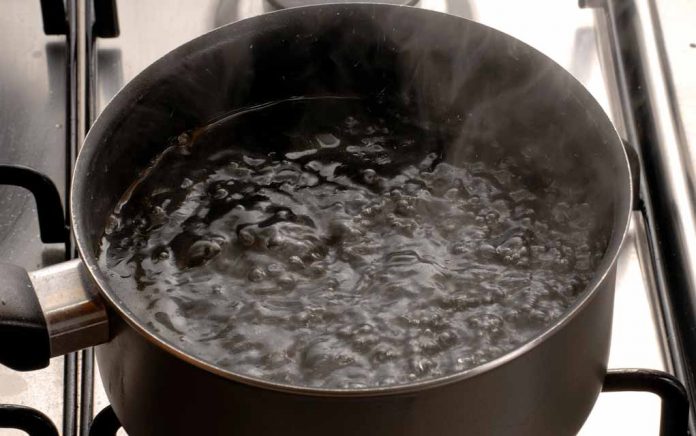
Are you turning your water toxic? A rumor has been making the rounds lately that reboiling water can make it dangerous to drink. Rest assured this is only partially true.
Rumor has it that reboiling water changes its physical properties, making it toxic to drink. Fortunately, this is untrue, although there is a sliver of reality behind the odd urban myth. Boiling water too long can concentrate contaminants, potentially increasing particles of lead, dioxin, nitrates and radium to toxic levels. Learn how this could affect you and your family by checking out what we’ve uncovered below.
Here’s the Real Story on the Dangers of Boiled Water.
The Chemistry of Boiling Water
Liquid water boils when it becomes hot enough to change into vapor. Even though vapor and liquid are two very different states, the water’s actual composition remains the same. While some compounds, like chlorine, can boil out, most will remain as sediment. This means, no matter how many times you boil it, you can’t change the actual makeup of your water.
This doesn’t mean all water boils equally. Mineral and impurity content — everything in your water that isn’t actually water — can vary greatly depending on the source. Usually, the chemical, biological, and radiological contaminants in your drinking water are all likely to test within EPA limits. This may not remain the case after you’ve boiled off a good portion of the water itself and concentrated those impurities.
Most Common Contaminants
Contaminants can vary by region, but there are several you don’t want to be concentrating in your drinking water. Some common contaminants of concern are lead, dioxin and nitrates. Radium is also present in many regions.
Lead
We’ve seen reductions of lead contamination in recent decades due to the phasing-out of lead pipes, but as we’ve seen in places like Flint, Michigan, the threat is still very real. Lead poisoning can reduce I.Q. and cause hearing and developmental problems in children. It can also lead to heart and kidney diseases in adults.
You can reduce your chances of lead exposure by running water liberally through old pipes. Also, never use hot water from the tap, which can increase lead soldier contamination. Most water filters will reduce lead content.
Dioxin
Dioxin is an industrial byproduct, produced through certain types of herbicide production and chlorine combustion. It’s most common in areas heavy with factories. Long-term exposure can increase cancer risks and cause reproductive difficulties. Most carbon filters will remove dioxin content.
Nitrates
The byproduct of animal waste and fertilizer, nitrates can accumulate from groundwater runoff. They are particularly dangerous to infants under six months old, who can develop breathing problems and even die from excessive exposure. Nitrates will only filter out via reverse osmosis, electrodialysis or ion exchange.
Radium
How about a little radioactivity with your water? Radium exists naturally in minerals that can leach into groundwater, and you can find it in low levels all across the country. It can’t permeate your skin, so it’s safe for bathing and showering, but you definitely don’t want to be boiling it down and drinking it. Exposure can lead to anemia, cataracts, weakened teeth, damaged immune function, and cancer. You can lower the radium content in your water using reverse osmosis or an ion exchange filtering system.
Chances are, you don’t have anything to worry about in your drinking water. If you are concerned, look into the different types of filtration systems and see which one will best fit your needs. No matter how else you treat it, just don’t boil it down before you drink it.
~Here’s to Your Healthy Ascension!
Copyright 2019, AscendHealthy.com













